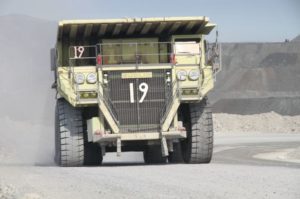 Bill C-69 threatens to further depress investment in the natural resources sector and delay projects by unnecessarily exposing them to political risk, says a new report from the C.D. Howe Institute.
Bill C-69 threatens to further depress investment in the natural resources sector and delay projects by unnecessarily exposing them to political risk, says a new report from the C.D. Howe Institute.
The planned investment value of major resource sector projects plunged $100 billion between 2017 and 2018, note Grant Bishop and Grant Sprague, authors of “A Crisis of Our Own Making: Prospects for Major Natural Resource Projects in Canada.” This plunge is equivalent to 4.5 percent of Canada’s gross domestic product.
With investment in Canada’s resources sector already depressed, the federal government’s proposed Bill C-69 could further discourage investments by congesting the assessment process with wider public policy concerns and increasing political uncertainty. Proponents of major projects may perceive additional political risks because of a lower threshold to trigger political decision-making and a highly subjective standard for project approval.
“The crowding of policy debates – for example, over Canadian policy for reducing greenhouse gas emissions – into project-specific determinations risks significantly prolonging the assessment process and exacerbating uncertainty for project proponents,” say Bishop and Sprague.
The report recommends the federal government:
- Specify clear criteria for assessing projects that can be applied in a consistent and timely manner.
- Preserve the role of “lifecycle” regulators (i.e., the National Energy Board/Canadian Energy Regulator and Canadian Nuclear Safety Commission) in leading assessments.
- Require a project’s adverse effects be found “significant” before involving political decision-makers.
- Ensure review panels can focus on relevant submissions by maintaining an appropriate standard for participation in hearings.
- Update guidance for federal officials to ensure consistent consultation of Indigenous peoples –that satisfies the past decade of case law on the duty to consult.
- Compile and annually report on timelines for federal environmental assessments across major projects in Canada compared to other countries.
“Many projects in Canada have faced environmental assessments that take much longer than in comparator jurisdictions,” note Bishop and Sprague. “Canadian timelines for mining projects are substantially longer than in Australia, and Canadian pipeline approvals are protracted relative to those in the United States.”
